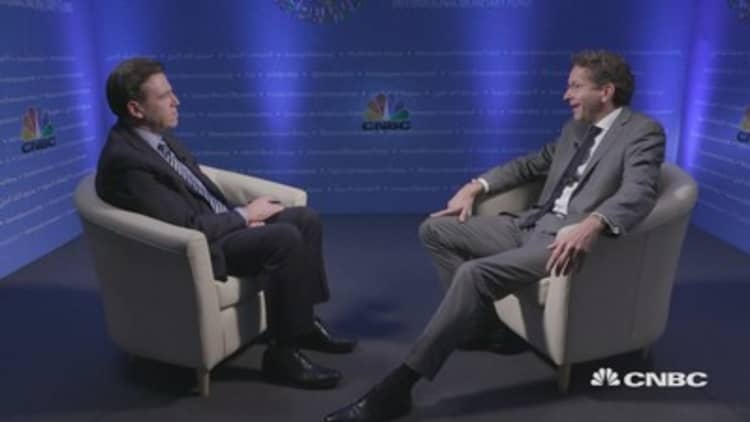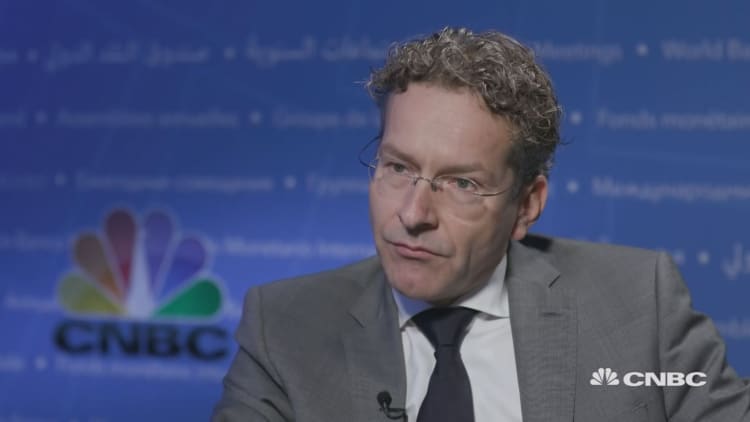
A top EU official has told CNBC that he wants solutions rather than name calling amid Brexit negotiations, following controversial comments made by the U.K. finance minister on Friday.
Eurogroup President Jeroen Dijsselbloem responded to news that Britain's finance chief Philip Hammond had called the EU "the enemy", by pointing out that it isn't likely to progress stalled negotiations.
"I don't think those kind of etiquettes are helpful, I think the situation is quite worrisome because we are stuck," Dijsselbloem told CNBC on the sidelines of the International Monetary Fund meetings in Washington D.C.
"I think we all realize that being stuck is first and foremost for the U.K a huge risk but of course could also be negative for the EU. I don't think we should use names but try and find solutions," added the Eurogroup leader who heads the meetings of the 19 finance ministers from nations that share the euro.
Dijsselbloem said he didn't want to sideline Hammond from conversations because the U.K. Treasury had in fact been "the reasonable partners to talk to."
In an interview with Sky News earlier Friday, Hammond tried to adopt a tough line on Europe following criticism from his own Conservative Party that he was being too soft on Brexit:
"The enemy, the opponents, are out there on the other side of the table. Those are the people that we have to negotiate with. We have to negotiate hard to get the very best deal for Britain," Hammond said.
Shortly afterwards on Twitter, Hammond apologized.
Slow progress
After five rounds of negotiations, Michel Barnier, the EU's chief negotiator said Thursday the U.K. was once again not ready to detail the financial commitments it needs to make in order to leave the bloc.
Before negotiations move on to trade, there needs to be agreement on citizens' rights, the Irish border and on how much the U.K. will have to pay to settle the accounts.
Doubts exist whether Brexit talks can be concluded in time for approval at the European Parliament before March 29, 2019 – the date the U.K. is set to leave the European Union.

Stepping down
Dijsselbloem will see out his role as Eurogroup chief in mid-January. He is also leaving Dutch politics and will step down on October 25, after five years as finance minister and 17 years as a member of parliament, when a new government comes in.
Asked if he had regrets over his tenure as Eurogroup president, the Dutchman said when he arrived, Europe was at the depth of a crisis and now the situation is quite healthy.
He added however that he wished the recovery could have been done in a less costly way.
"I think the only way we could have done that is if we had dealt with our problems much earlier. We let things get out of hand and we were in a weak position at the start of the crisis," he said.




